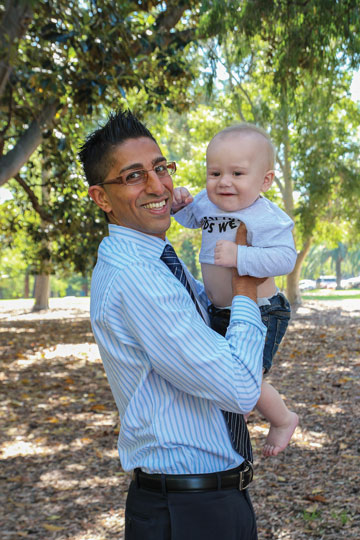Search
Showing results for "rishi kotecha"
Research
Primary central nervous system lymphoma: Initial features, outcome, and late effects in 75 children and adolescentsChildren with Primary Central Nervous System Lymphoma and no immunodeficiency have a good outcome
Research
Molecular characterization of identical, novel MLL-EPS15 translocation and individual genomicAcute Lymphoblastic Leukemia (ALL) occurring in the first year of life is rare.
News & Events
New insight into treatment options for rare childhood brain tumour, 2011 Media Release, Telethon Institute for Child Health ResearchA new study led by Australian researchers has outlined for the first time the best treatment options for children suffering from meningioma

News & Events
The Kids Research Institute Australia researchers share in State Government science grantsFour The Kids Research Institute Australia researchers are among those who have received funding in the WA State Government's Merit Award Program announced today.
Research
Development of new preclinical models of childhood leukaemiaSébastien Laurence Rishi S. Malinge Cheung Kotecha PhD BPharm (Hons) MBA PhD MB ChB (Hons) MRCPCH FRACP PhD Laboratory Head, Translational Genomics
Research
Novel therapeutics approaches for infants with high-risk infant acute lymphoblastic leukaemiaRishi S. Laurence Sébastien Kotecha Cheung Malinge MB ChB (Hons) MRCPCH FRACP PhD BPharm (Hons) MBA PhD PhD Co-Head, Leukaemia Translational Research
Research
Preclinical Assessment of Dactinomycin in KMT2A-Rearranged Infant Acute Lymphoblastic LeukemiaInfants with KMT2A-rearranged B-cell acute lymphoblastic leukemia (ALL) have high rates of relapse and poor survival compared with children. Few new therapies have been identified over the past twenty years. The aim of this study was to identify existing anti-cancer agents that have the potential to be repurposed for the treatment of infant ALL.

News & Events
Drug find could represent big win for our little patientsDr Rishi Kotecha knows too well the devastation of a leukaemia diagnosis in a child, treating children as a consultant at Princess Margaret Hospital.
Research
Polyamine depletion limits progression of acute leukaemiaCancer cells are addicted to polyamines, polycations essential for cellular function. While dual targeting of cellular polyamine biosynthesis and polyamine uptake is under clinical investigation in solid cancers, preclinical and clinical studies into its potential in haematological malignancies are lacking. Here we investigated the preclinical efficacy of polyamine depletion in acute leukaemia.
Research
Insights into the Clinical, Biological and Therapeutic Impact of Copy Number Alteration in CancerCopy number alterations (CNAs), resulting from the gain or loss of genetic material from as little as 50 base pairs or as big as entire chromosome(s), have been associated with many congenital diseases, de novo syndromes and cancer. It is established that CNAs disturb the dosage of genomic regions including enhancers/promoters, long non-coding RNA and gene(s) among others, ultimately leading to an altered balance of key cellular functions.
